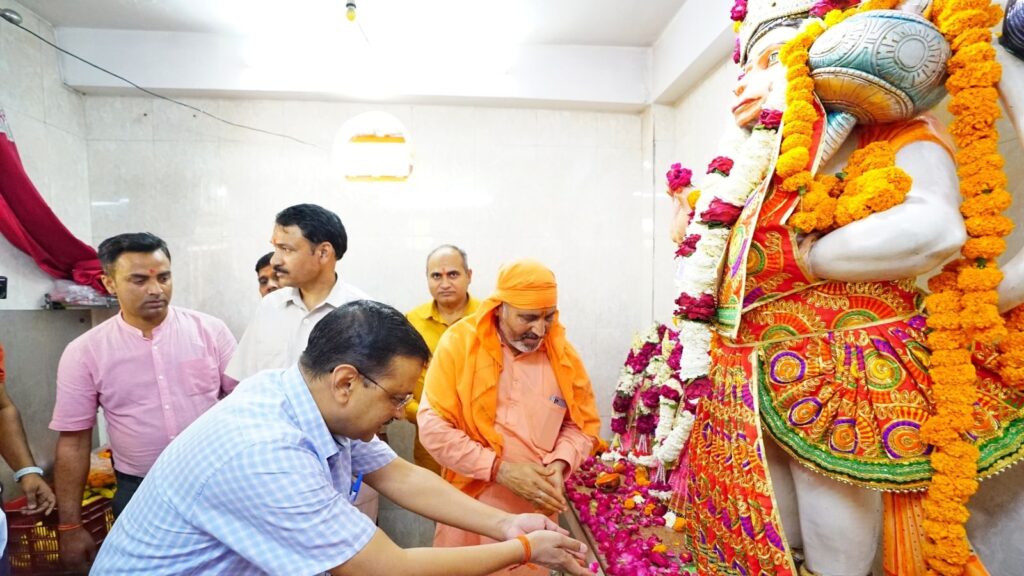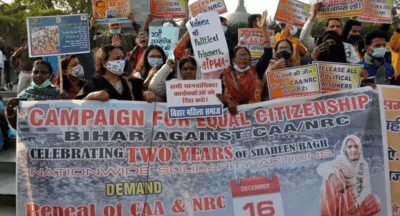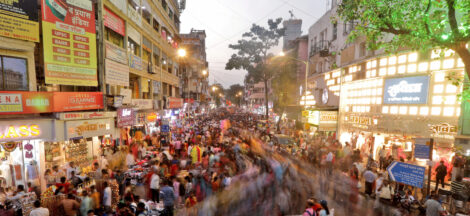Delhi Chief Minister Arvind Kejriwal marked a significant moment by visiting the Hanuman Temple in Connaught Place on Saturday, a day after securing bail from the Supreme Court in the Delhi liquor policy scam case. This gesture, which he shared on social media, reflected both a moment of gratitude and a public affirmation of his faith amidst ongoing legal battles.
Kejriwal had been embroiled in investigations by both the Central Bureau of Investigation (CBI) and the Enforcement Directorate (ED) over corruption allegations tied to the Delhi liquor policy. After months of legal contention, the Supreme Court’s decision on Friday to grant him bail was a turning point in the case. Although Kejriwal was granted temporary relief, the court imposed restrictions on his movement, barring him from entering the Delhi Secretariat or his office at the Chief Minister’s headquarters.
Justice Surya Kant, one of the judges involved in the ruling, pointed out that the charge sheet in the case had already been filed, reducing the urgency to keep Kejriwal under custody. Despite these developments, the trial itself remains pending, and further proceedings could take considerable time.
The Chief Minister’s visit to the temple came at a delicate political moment. On the one hand, Kejriwal has publicly positioned himself as a leader focused on governance and transparency. On the other, the legal scrutiny around his involvement in the liquor policy scam has continued to cast a shadow over his administration. The temple visit served as a public display of gratitude and resilience, a symbolic nod to a higher power amidst his political and legal trials.
As Kejriwal emerged from the temple, political reactions began to pour in. Supporters hailed the visit as a personal moment of reflection, while his critics viewed it as a calculated move to divert attention from the mounting legal pressures. The Chief Minister, known for his use of social media to engage with the public, posted about his temple visit, sparking a series of debates about its timing and intent.
Legal experts have noted that despite the bail, Kejriwal’s troubles are far from over. While the immediate threat of arrest may have been averted, both the CBI and ED investigations continue to probe deeper into the alleged mismanagement of the liquor policy. These inquiries focus on whether political figures, including Kejriwal, benefited financially from decisions related to the policy.
The liquor policy case, which has rocked Delhi’s political landscape, centers on claims that changes to the distribution framework benefitted select private entities at the expense of the public treasury. Kejriwal, however, has consistently denied any wrongdoing, labeling the allegations as politically motivated attempts to tarnish his administration’s record.
Kejriwal’s visit to the Hanuman Temple resonated with a section of the public, particularly those who see his leadership through a religious and cultural lens. The temple, located in the heart of Delhi, is a popular spot for political figures to seek divine blessings, and Kejriwal’s decision to visit after a high-profile legal battle was seen by some as a way to regain public favor.
As the Chief Minister’s legal challenges unfold, the political implications of his temple visit will continue to be scrutinized. In a state like Delhi, where politics often intertwines with religion, such public gestures can have significant symbolic weight. Kejriwal’s core voter base, which includes large sections of the middle class and urban poor, may see this move as a sign of humility and conviction. However, it also invites questions about the line between personal faith and political maneuvering.




 Mamata Urges Dialogue as Doctors Continue Protests
Mamata Urges Dialogue as Doctors Continue Protests 